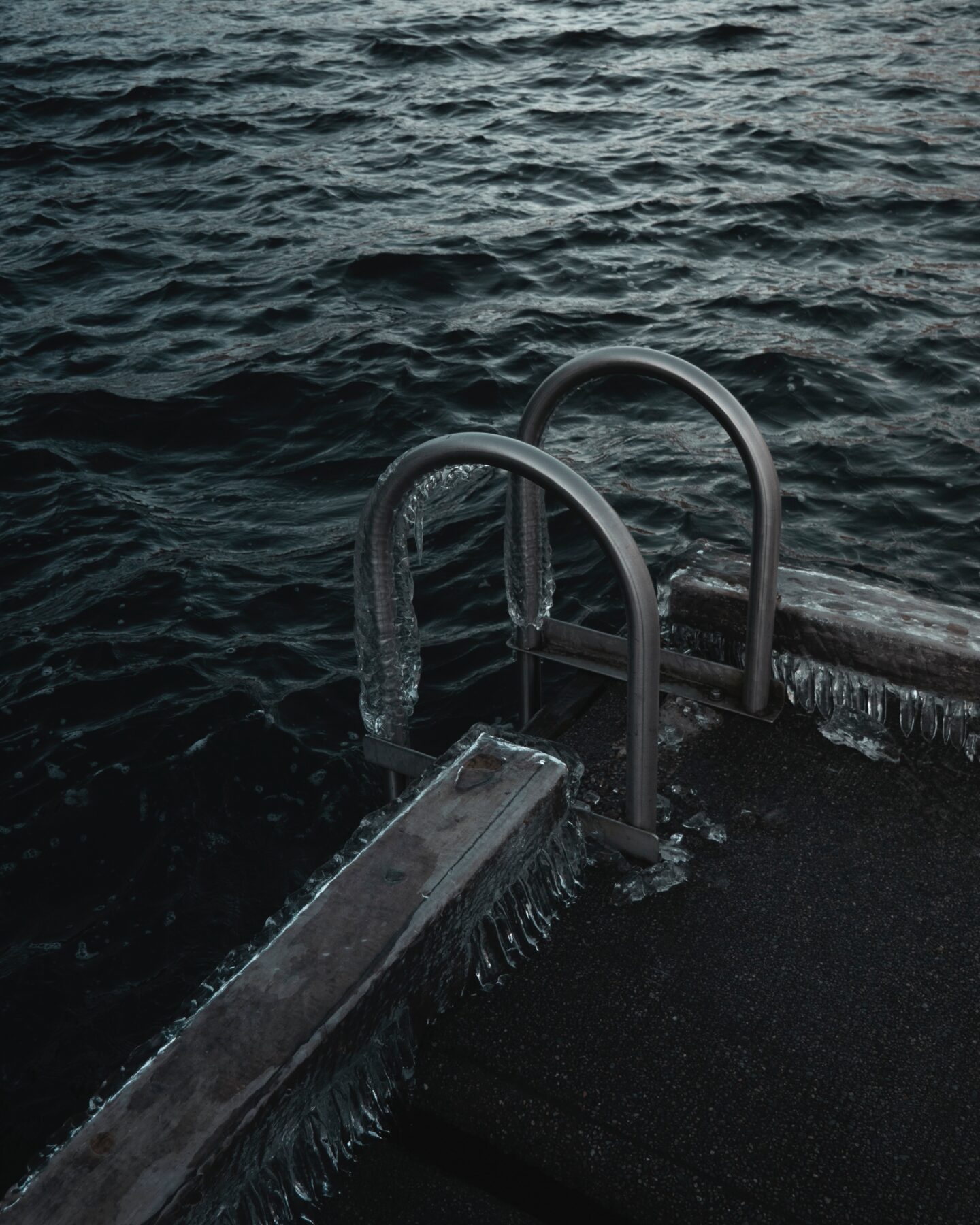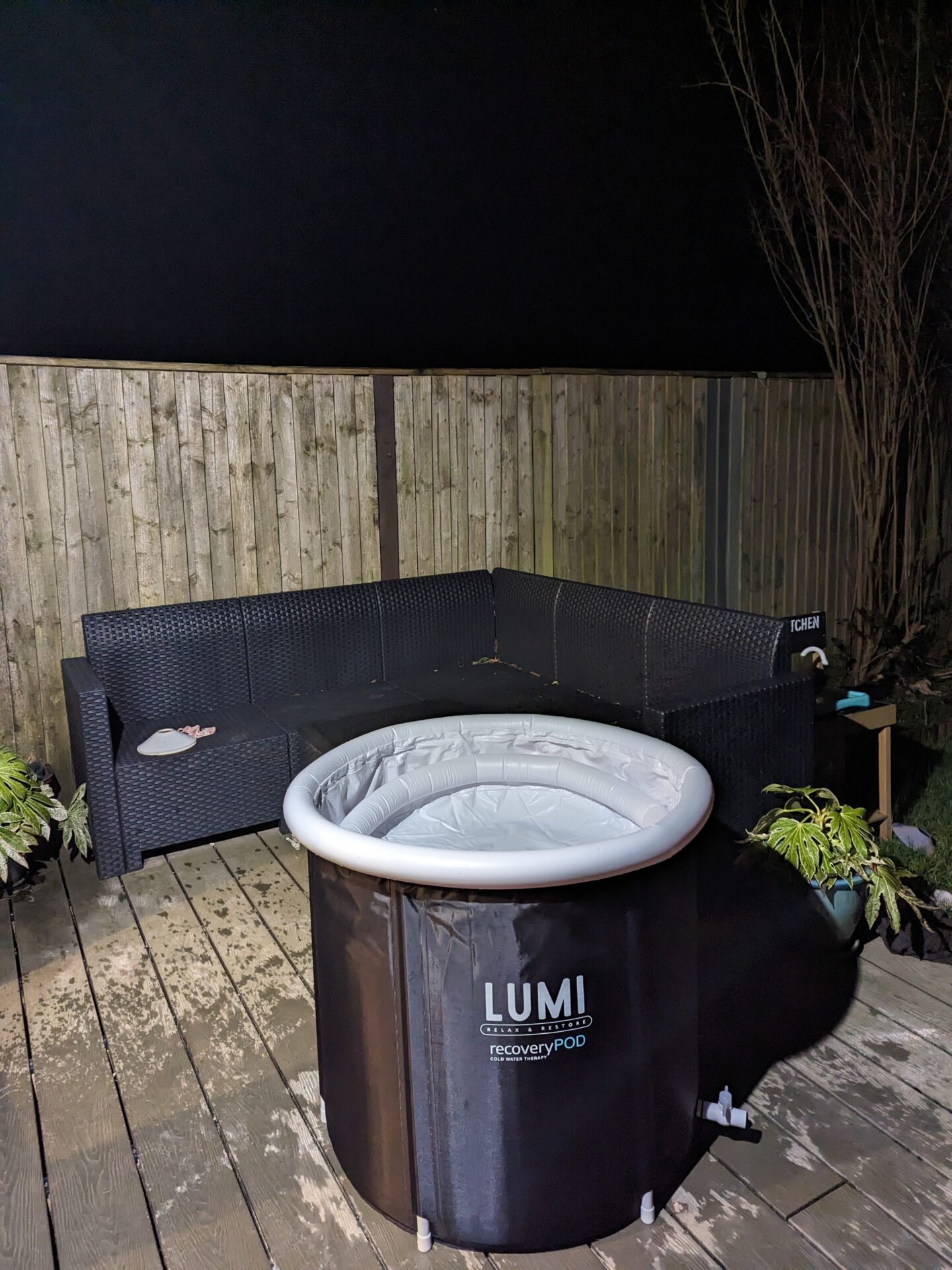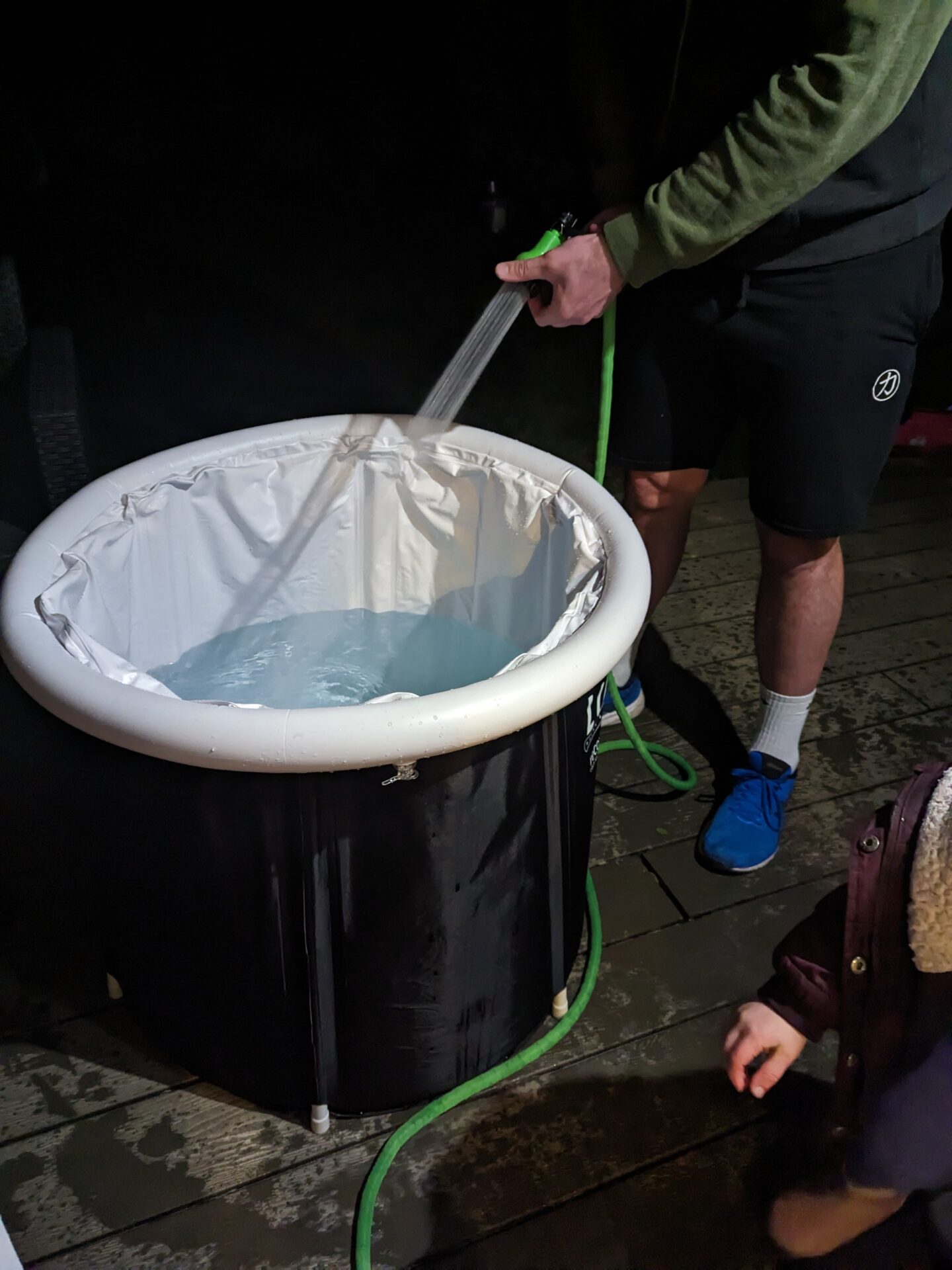
You’ve heard all the hype. Jump into a freezing cold ice hole in the middle of the Arctic, and your life will improve in an instant.
Suddenly, everyone is chattering (literally) about cold water therapy. Wim Hoff, the Ice Man, holds a record for a barefoot marathon on ice and snow.
Does this man sound like a revolutionary guru or perhaps just a little bit insane?
Honestly, running on snow with no shoes on doesn’t sound like a pleasant experience – and for what?
Cold water therapy isn’t a new thing. All these Instagram influences didn’t invent it. Hippocrates, a Greek physician, believed that water therapy helps with tiredness. And way back in the 18th century, doctors would suggest a cold bath to help with illnesses like rickets and fever.
So, let’s peel back the curtain and look beyond the fad that’s swept through the internet. Because at the end of the day, social media and news stories might lie, but the science doesn’t.
So in this article, I’m going to delve into the research and see what it has got to say.
I also recently received a (gifted) ice bath from Lumi Therapy, so I’ve got first-hand experience of taking ice baths. But, (full disclaimer) I can’t say I’ve progressed that far just yet. I’ll share my thoughts on it below.
The cold truth about ice baths – do they work?
Here’s my experience of the cold, using an ice bath and what the research says about the mental and physical benefits.
How I handle the cold

Now let me give you a little bit of background on my experience with the cold.
When I was a teenager, I used to compete in competitions around the world that required me to swim in freezing cold seas and lakes.
It was a run-swim-run competition. Naturally, at that age, I plunged into the water no problem. You don’t feel cold when you get out of the water because you’re straight into a running race!
But as I’ve got older, I’ve found being in cold water and generally feeling cold much more challenging. I’m one of those people who spends the winter moaning about always being cold.
I take hot baths randomly in the middle of the day just to warm up. I carry hot water bottles around like they’re a part of my anatomy. I once went surfing in May with my sister and cried because my feet hurt so much from the ice-cold water.
So perhaps I’m not the best-placed person to try an ice bath and dive in head first. But, you will get an honest, meaningful review. If someone like me can master the ice bath, there’s definitely hope for everyone else.
The problem is, there isn’t a lot of research
Before we dive into the potential physical and mental benefits, it’s important to note that there’s not a huge amount of research to draw from. The majority of research done is more on the impact of cold water on muscle recovery, and the results are surprising. According to a study, there was no improvement in short-term recovery after resistance training.
A lot of the noise about cold water therapy is generated from people’s personal experiences. That’s not to say that there aren’t benefits. It’s just that we need more research to prove it. Some evidence has shown the Wim Hof method can help inflammatory conditions.
It’s also important to note that cold water therapy isn’t the best solution for everyone, and it should be approached with caution. Always speak to your GP or a medical professional before trying cold water therapy.
What are the mental health benefits of cold water therapy?
Mood booster – Apparently, cold water immersion led to a 250% increase in dopamine, according to a study. Dopamine is a hormone that has a substantial impact on your mood.
An increasing volume of anecdotal and scientific evidence suggests that mood may be enhanced following swimming in cold water. Lifestyle medicine
Sense of achievement – You get a sense of achievement by testing yourself and taking on a new challenge. Building up your tolerance to cold water can lead to a sense of achievement.
Immersing ourselves in cold water requires a willingness to experience something entirely out of the ordinary and every day, to challenge ourselves and our bodies. Mental Health Today
Battling depression & anxiety – Many people who suffer from depression have said that cold water therapy has helped. A case study conducted in 2018 on a 24-year-old woman who did cold water swimming led to a reduction in her symptoms.
Although I didn’t enjoy the cold to start with, the effect it had was like a weight being lifted off my shoulders.
However, it’s clear that a lot more research needs to be done. There just aren’t enough studies to reference.
Early research suggests this age-old practice might benefit mental health, but more research is needed. NY Times
Also, anxiety is a completely different beast from depression. I suffer from anxiety, and I have approached getting in an icy cold bath with caution (and if you do, too, seek professional medical advice before trying it).
I know that getting in freezing temperatures is going to trigger my flight or fight response. It’s going to mess with my breathing.
So before I got in, I was mindful that my reaction may be extreme. Jumping into the cold water forces you to face up to your stress and panic.
And over time, maybe it can help you to master it and gain a little more control. I’m not there yet. I have a lot more work to do, but I’m hopeful. I’m hopeful that the ice bath will one day be my ally, not my nemesis.
What are the physical health benefits of cold water therapy?
Pain relief – Some studies have shown it can help with pain relief, but the research is a little thin. A small study showed that taking 20-minute cold baths four times a week lowered pain in people with gout. But this is very specific!
A study by the Journal of Medical Hypotheses found immersion in cold water can help to increase endorphin production. Endorphins are great because they help to give you a natural mood boost and can help with pain.
Immune system – Immersing yourself regularly in cold water was shown by one study to increase the levels of white blood cells and improve immune function. White blood cells help your body fight off infection.
My experience with the ice bath so far

I’ve had an ice bath for a few months, and being totally honest, I’ve not managed to use it much. When we first got it, the outside temperature was pretty damn cold. So when I got in the water was proper icy.
You see all these people on Instagram cracking through thick layers of ice to get into their ice bath. This isn’t the best way to get started!!! You need to build up your tolerance gradually. You don’t know what prep work they would have done to get to that point (if any).
So I’m going to wait until we get some warmer weather and go in it when it’s manageable. Then I’m hoping to build up to colder temperatures over time so that, hopefully, by the time autumn rolls around, I’ll be able to adapt.
I’ll do another post once I’ve made a bit more progress. Sadly I’m not one of those people who can just jump in freezing water and tolerate it for a few minutes. I find the whole process quite painful. It’s normally my legs and feet that let me down rather than my body.
For some reason, I really feel the sharp pain from the cold in my feet and usually give up because of that. I really hope I can push through the pain barrier a little more. I consider myself quite a tough person with most things, but when it comes to the cold, I’m just a bit pathetic!
I’ve also found that at the moment, the ice bath is making my anxiety worse. Yep, you wouldn’t expect it. But it seems to escalate my level of panic. It triggers the fight or flight response, and my body seems to go into panic mode.
I’m finding that intense feeling hard to battle. I need to take some care to ensure I’m not putting myself in a situation I’m not comfortable with. So for me, it’s baby steps. Just stand in there and get my toes in for five seconds or so and work on some deep breathing when I get out. And just build from there.
I think, in the long run, it will be hugely beneficial to my mental health. But, like most things in life, it takes hard work, persistence and dedication. I’m looking forward to being able to harness the power of cold water and be more in control of my panic and anxiety.
Should you buy an ice bath?


Totally up to you. Don’t just buy it because everyone else is. Before you buy one, make sure you know the reason why you want it. Is it for pain relief, stress management or mental health reasons? For me, it’s for mental health reasons.
Always check with your doctor before even thinking about getting in an ice bath, as it’s not ideal for some health conditions. Trust your instincts and make sure you learn how to safely use your ice bath.
My ice bath was gifted by Lumi Therapy, you can find out more about their range here. It’s a well-made bath that’s easy to get in and out of, provided you are able to step over the side with ease. It comes with a lid which is handy because you can leave it filled up for a bit longer.
It was simple to put together, and so far, it has lasted pretty well. You could, of course, buy a paddling pool for maybe half the price, but it wouldn’t be very well suited to cold water therapy. It’s much better to be able to sit up in it rather than having to lay down in a pool.
As I’ve mentioned, I’m not very far into my journey, so we’ll see if the Lumi bath stands the test of time. So, do we think ice baths are worth it? I don’t have the answer yet. But from my research, it’s clear there are some benefits, it just depends on what you want to use your ice bath for. Feel free to share your thoughts in the comments below.
